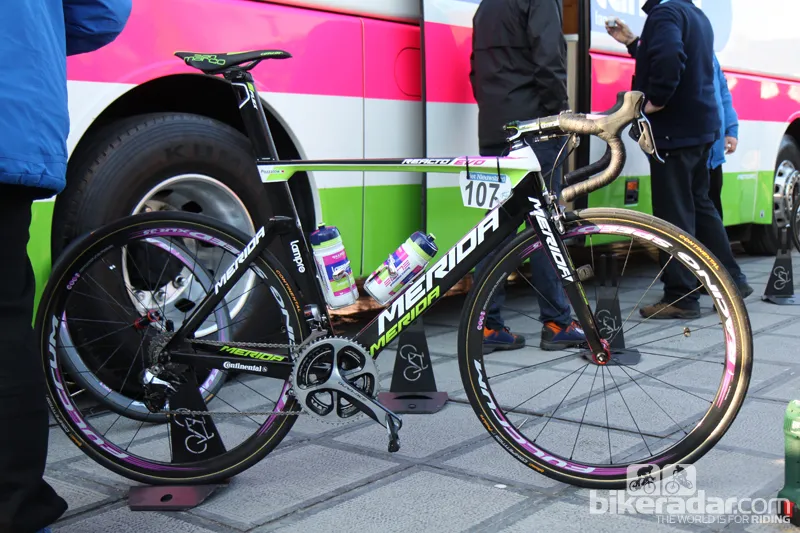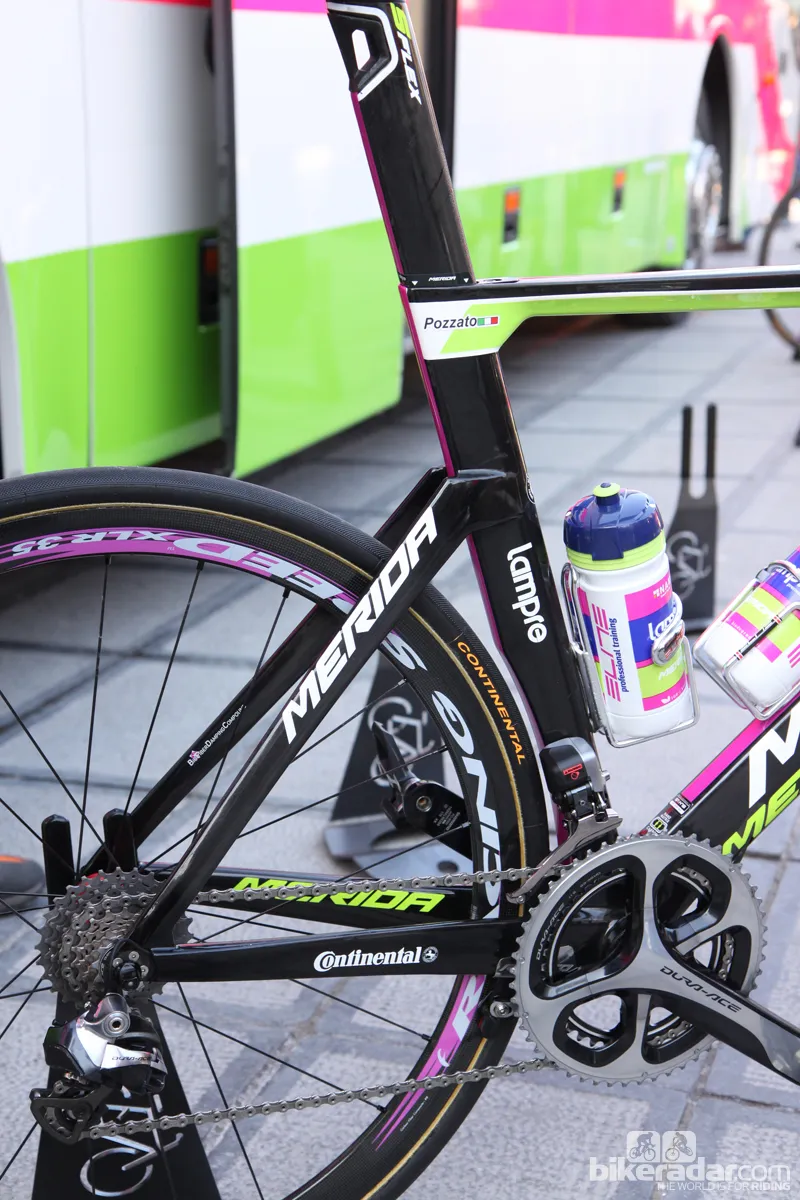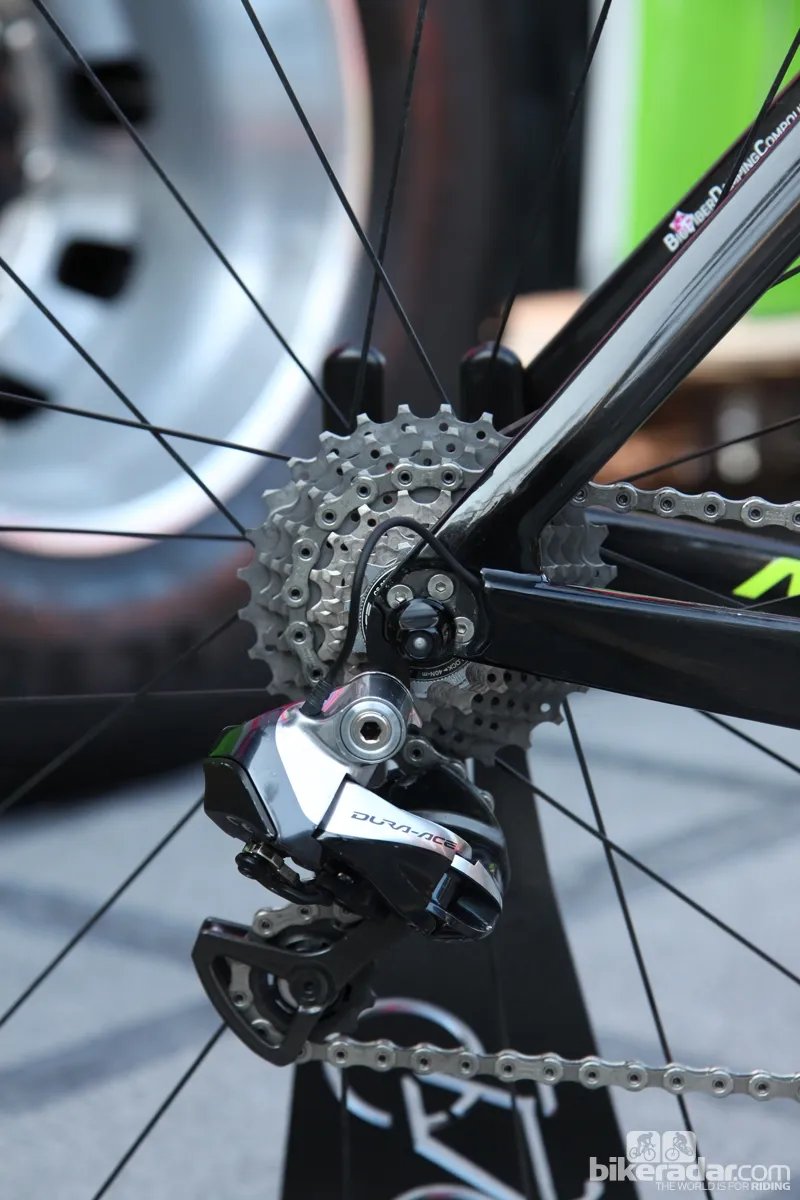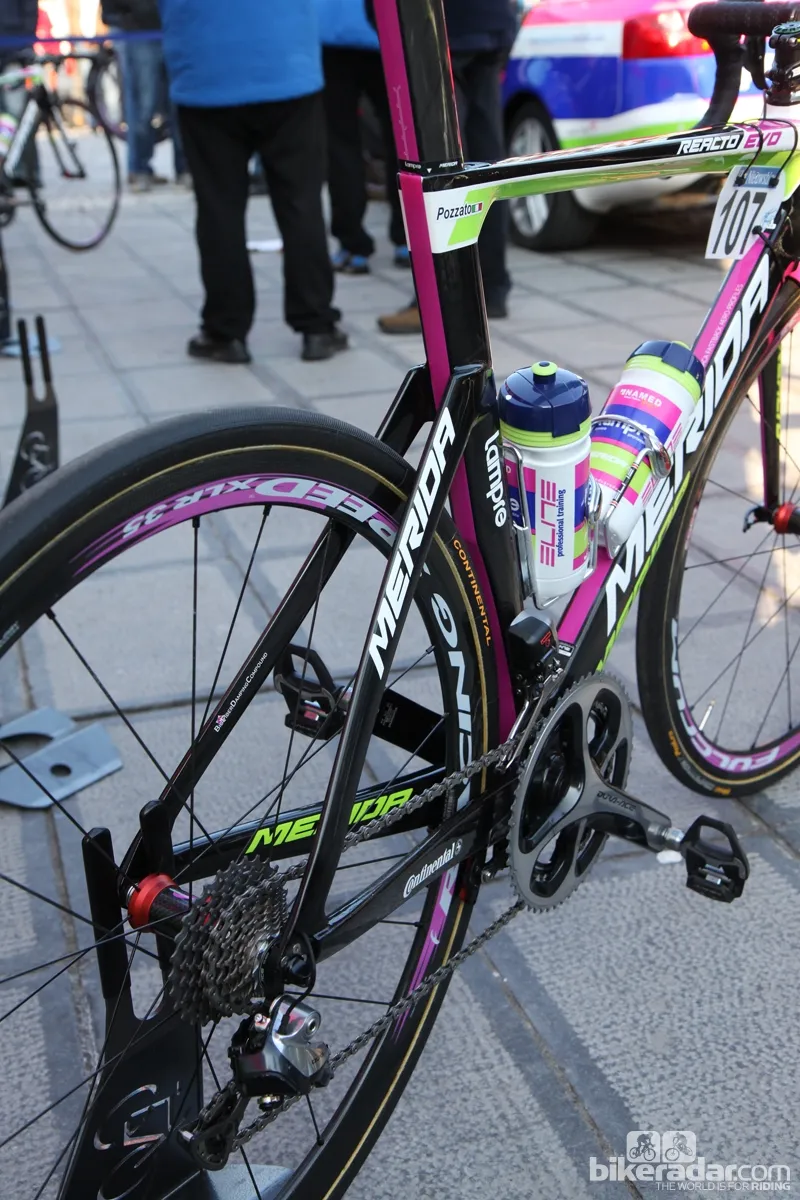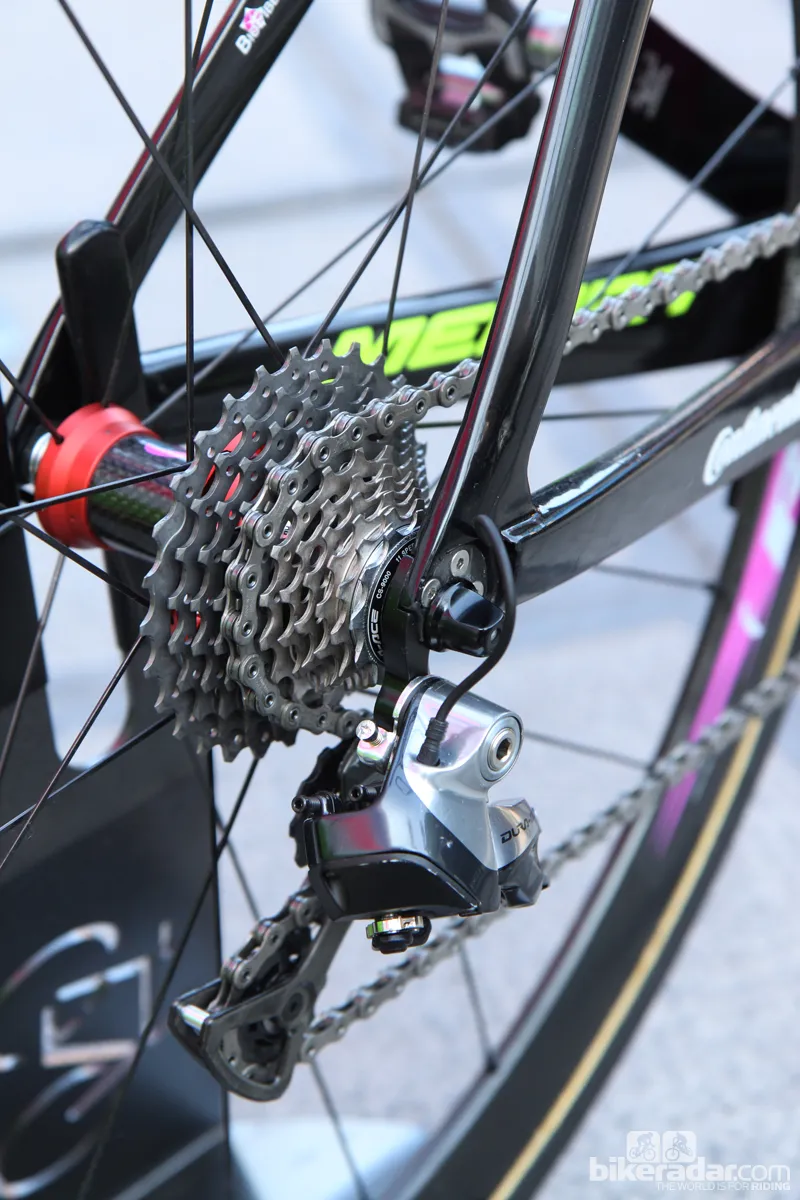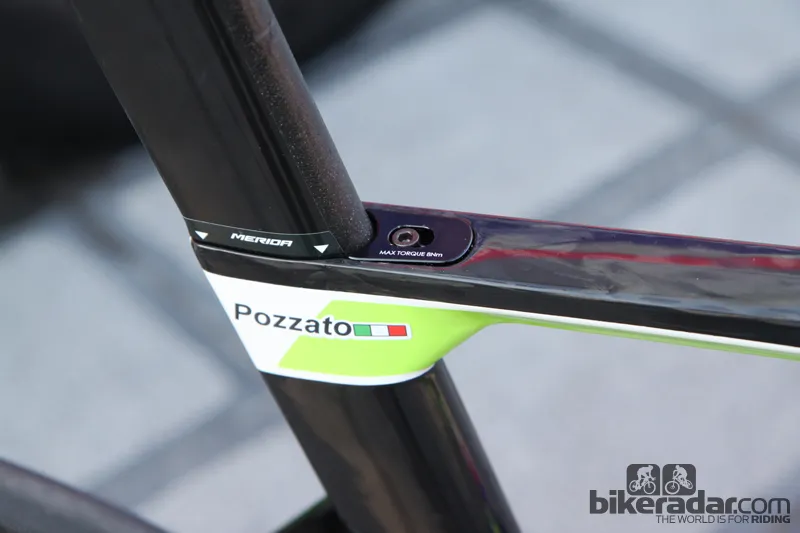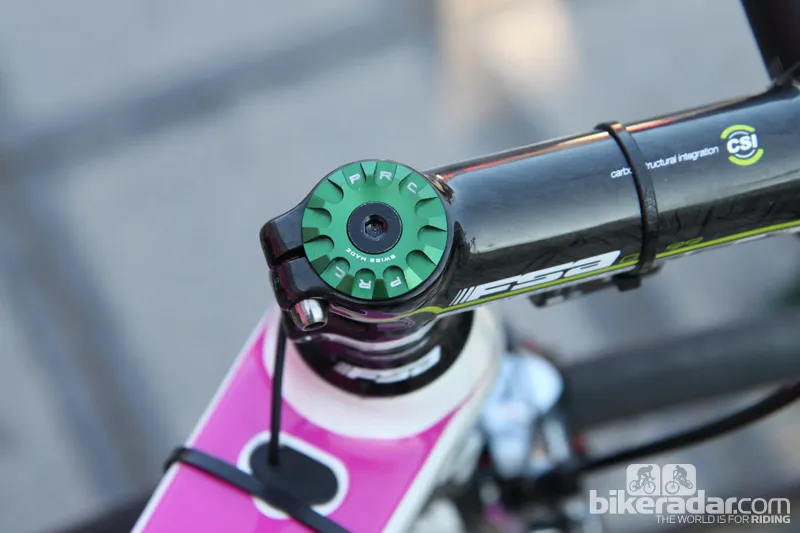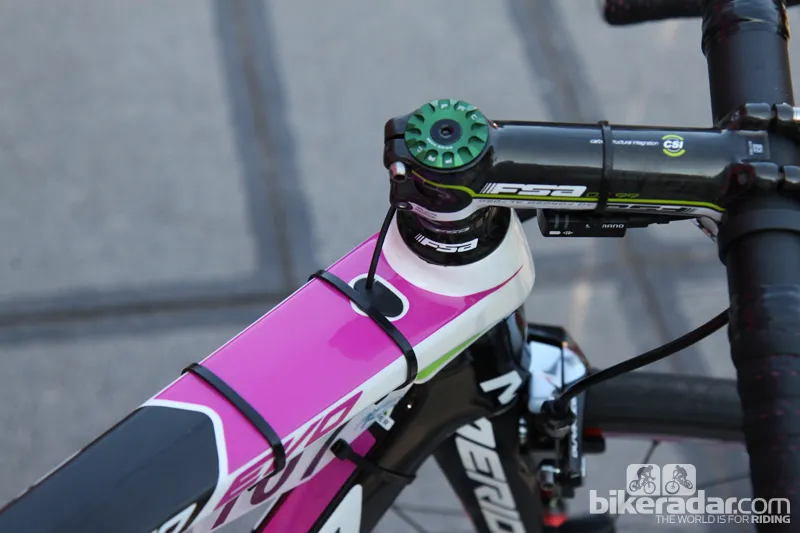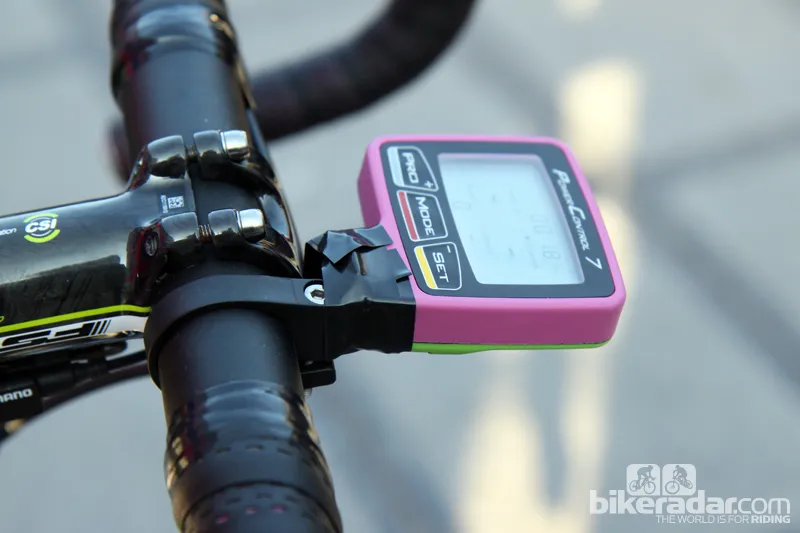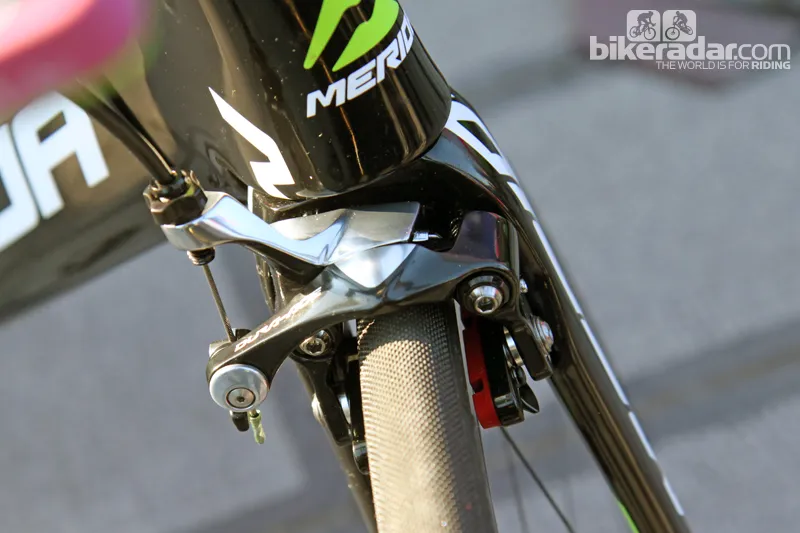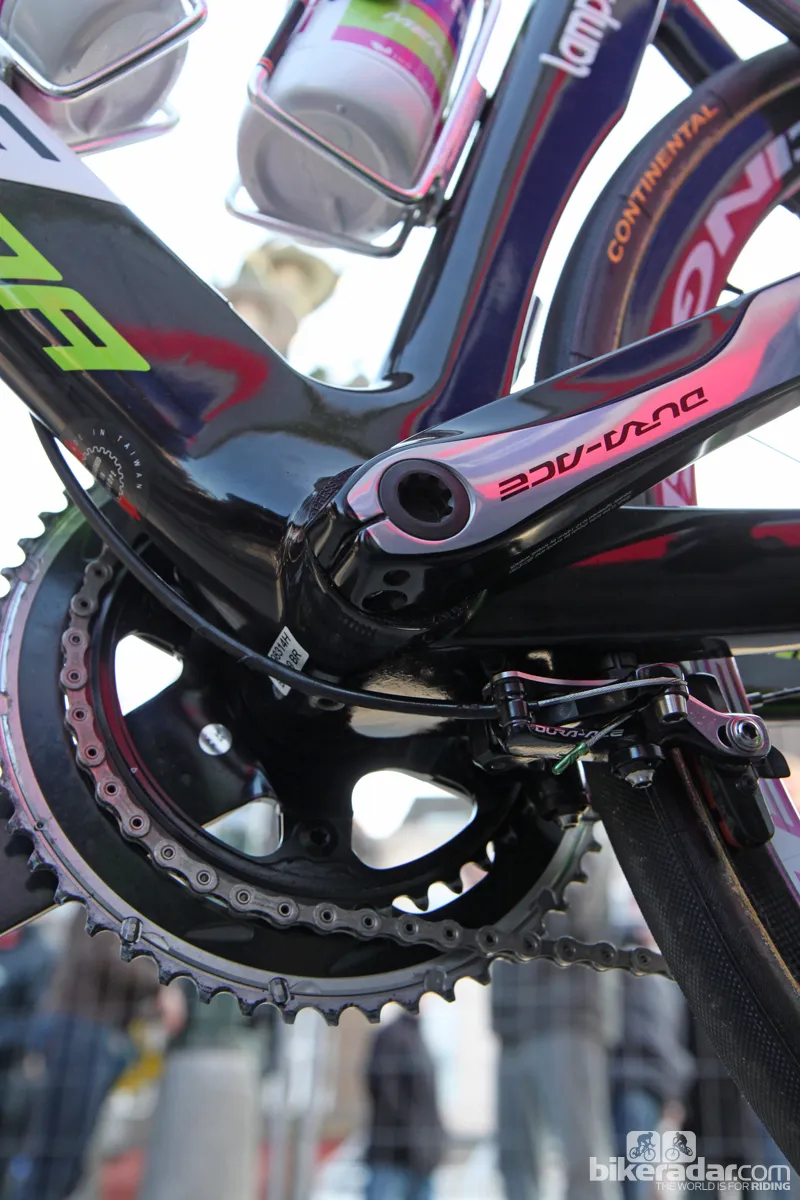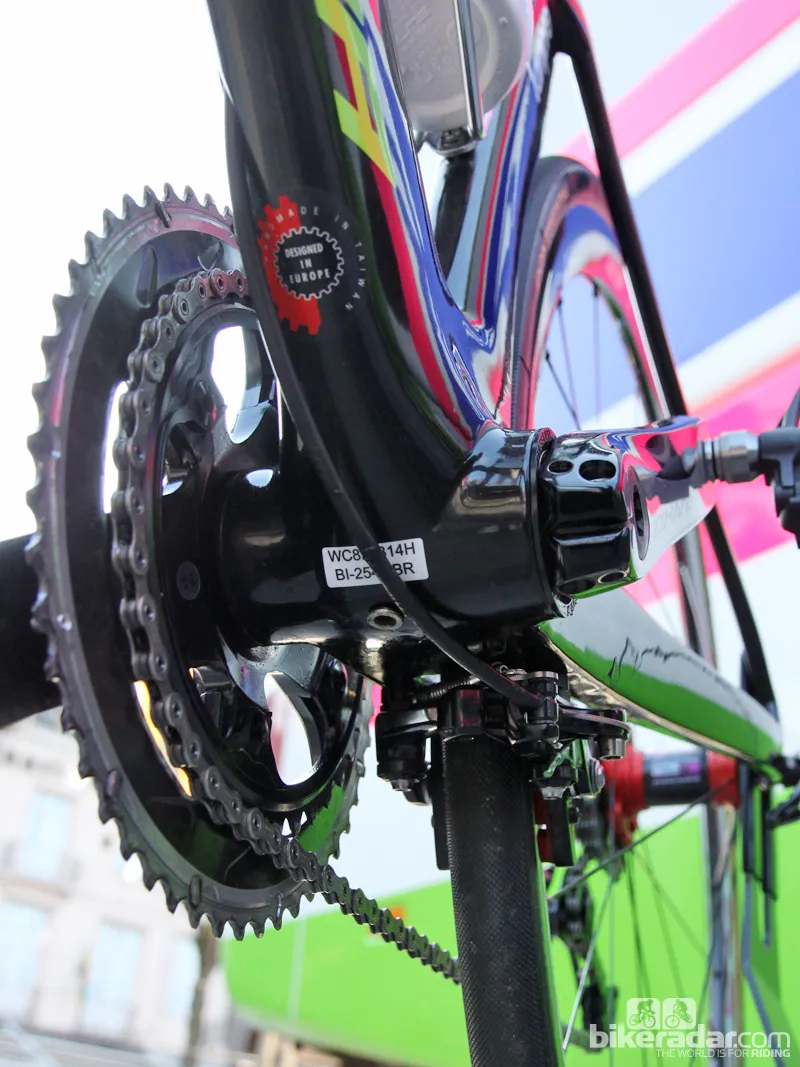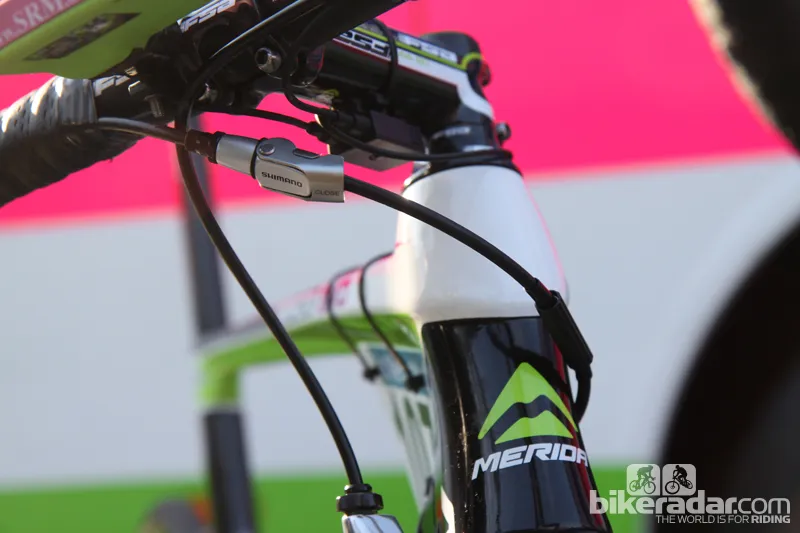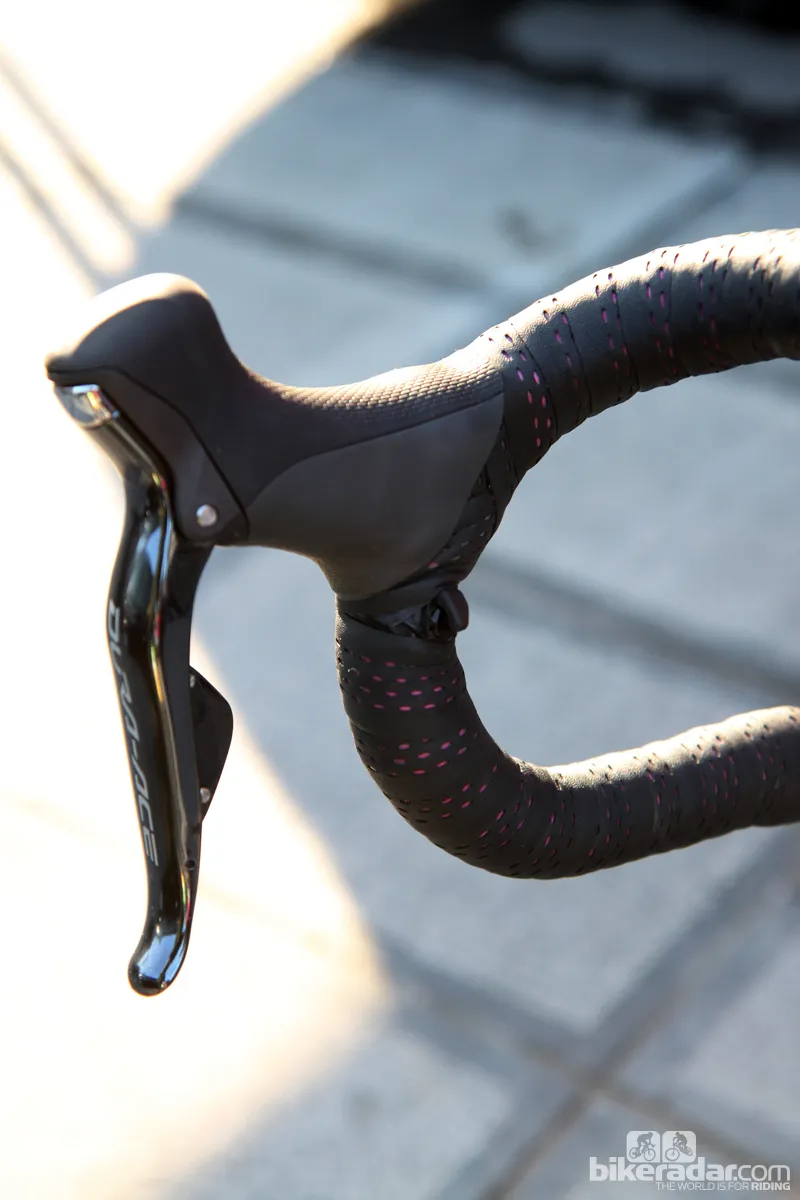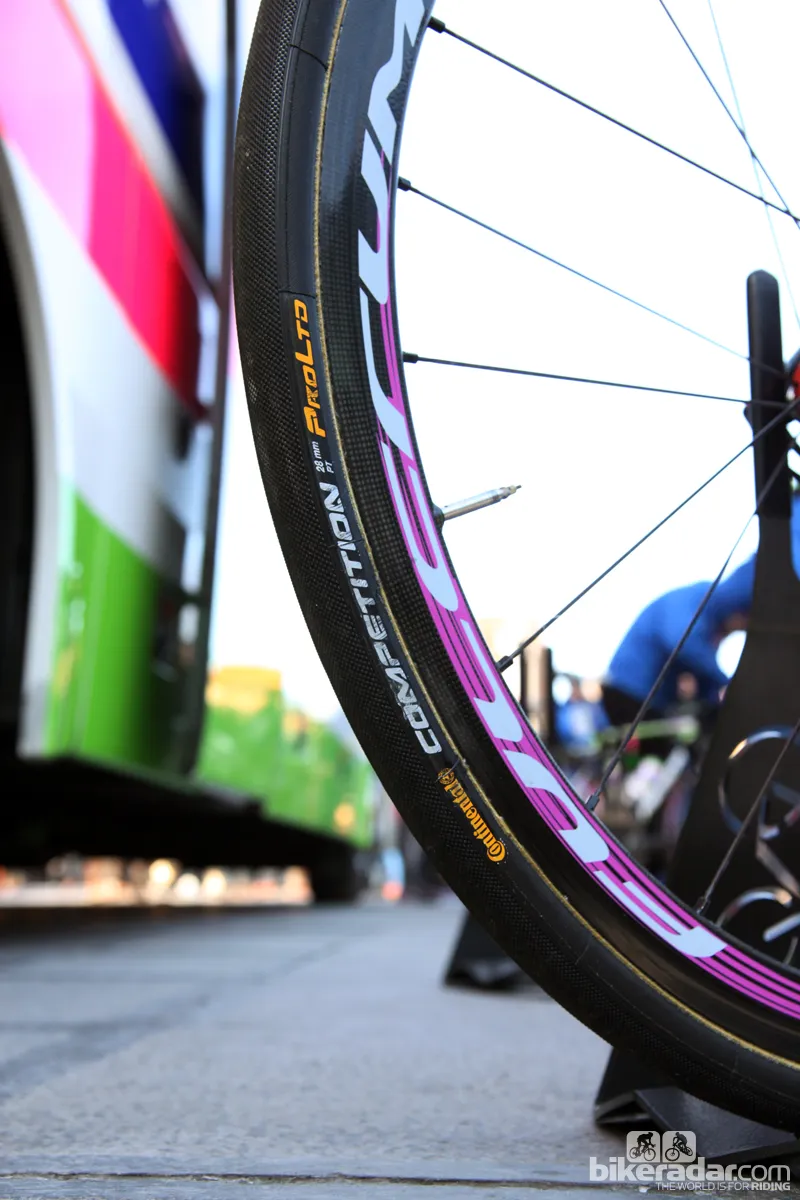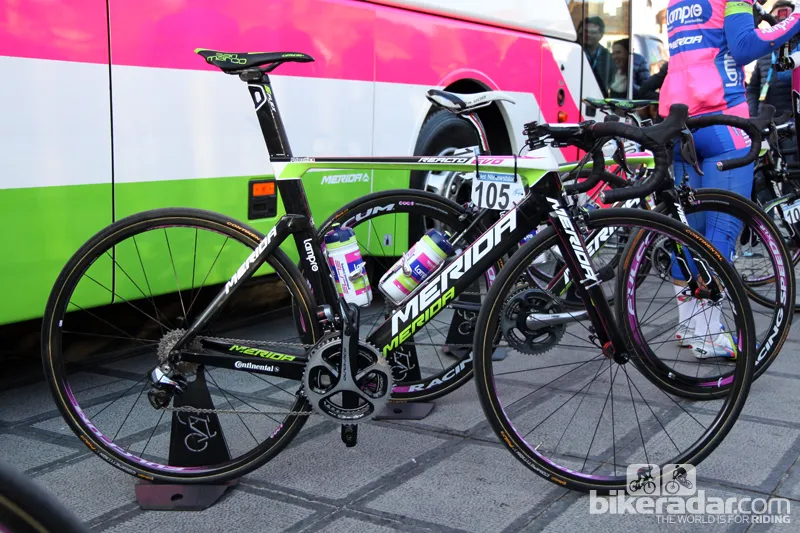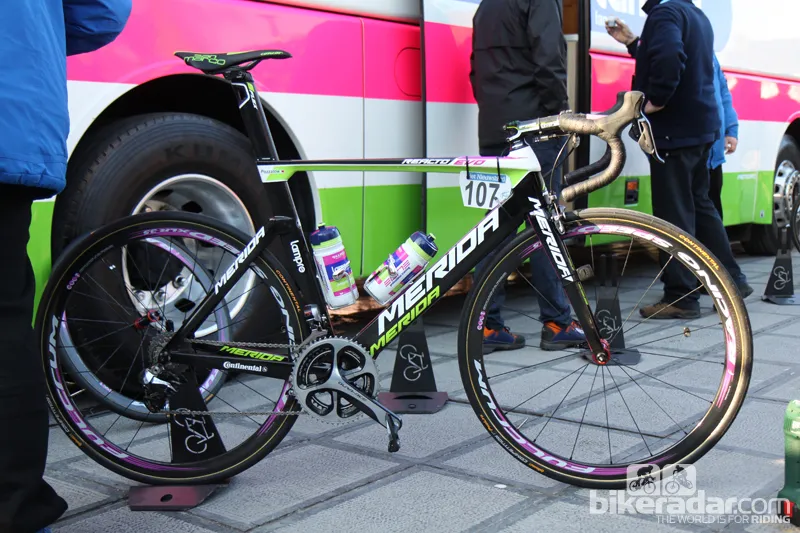Taiwanese bicycle powerhouse Merida is the latest company to toss its hat into the aero road bike arena, with the new Reacto Evo used by Lampre-Merida teammates Filippo Pozzato and Alessandro Petacchi at the start of this year's Tour of Flanders. With design DNA seemingly borrowed from the Trek Madone 7-Series and BMC TMR01 TimeMachine, it's a speedy-looking ride.
The new Merida Reacto Evo doesn't appear to break any radical ground design-wise, but it does seem to combine some of the most successful features of other aero-inspired machines.
The down tube, seat tube, fork blades, and seatpost all use Kamm tail-like cross-sections, with truncated tails. Direct-mount Shimano Dura-Ace brake calipers are used throughout, too, with the rear relocated beneath the chain stays. And the seat stays sport a clean, blade-like profile and compact layout that presumably produces smoother airflow.
Other aero-inspired features include a dead-level top tube and hourglass-profile tapered head tube, to reduce frontal area, convertible internal cable routing, and even a seatpost binder wedge that's neatly integrated into the top tube.
The Reacto Evo doesn't seem to sacrifice rigidity for aerodynamics, though – if anything, we expect it to be very stiff given the team riders using it. Save for the seat stays, just about all of the tubing uses a large diameter, and Merida has outfitted the bike with a wide and oversized BB386 EVO bottom bracket shell, complete with the larger adjoining tubes and wider chain stay spacing that format allows.
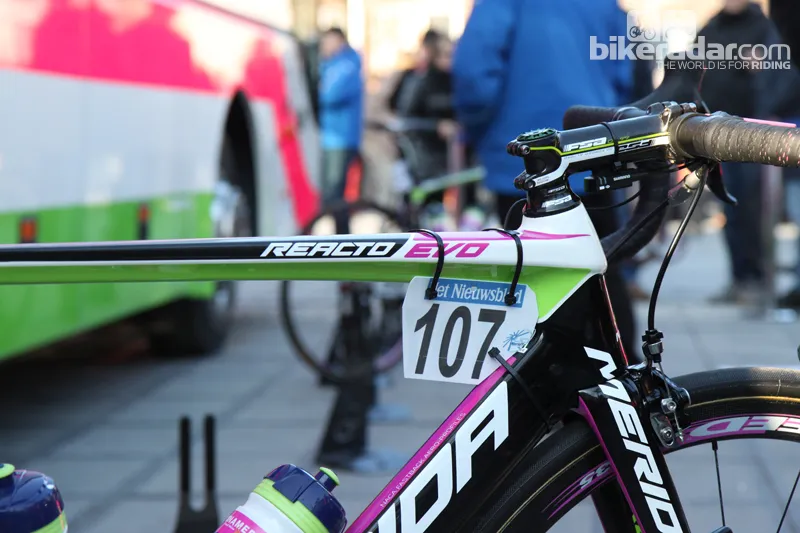
The dead-level top tube on the new Merida Reacto Evo
We don't expect the Reacto Evo to be brutally harsh, either, thanks to the aggressively hogged-out seatpost shape and the shock-absorbing elastomer insert filling in the area.
BikeRadar doesn't have any official information from Merida just yet, but stay tuned as we expect an official launch later this season.
